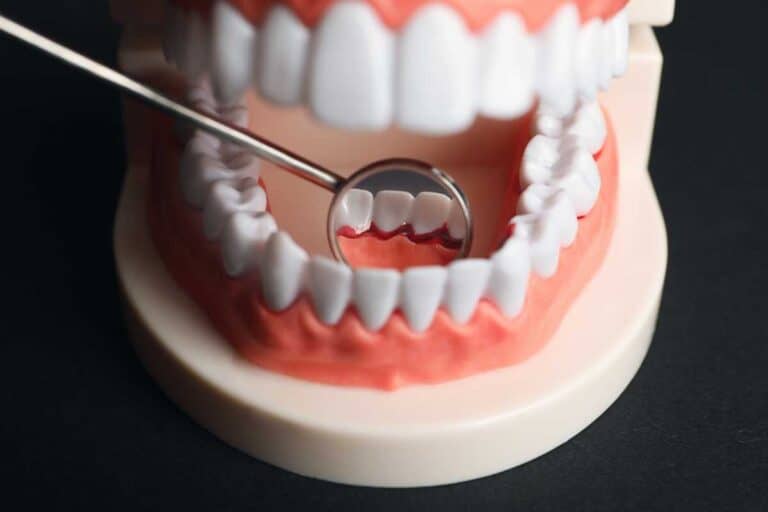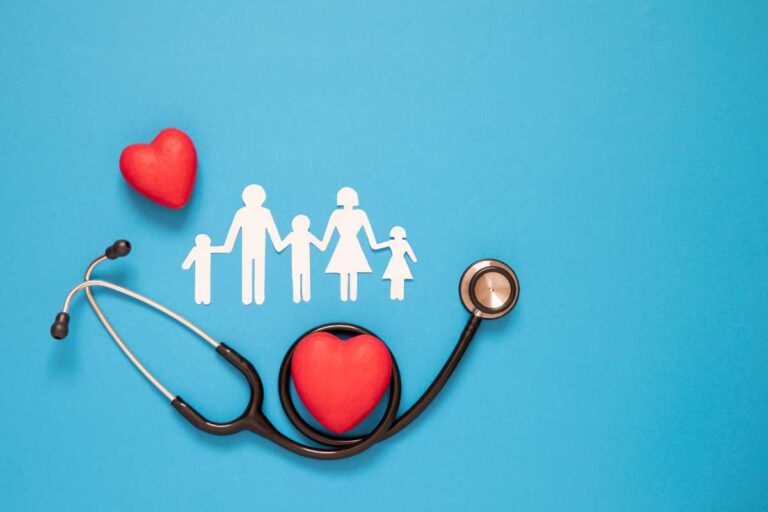What are Muslim Medical Treatments: A Complete Guide
What are Muslim Medical Treatments: A Complete Guide

Islamic civilization has a rich history of advancements in the field of medicine. During this time, the establishment of hospitals and medical schools played a vital role in providing healthcare to the Muslim community. Prominent Muslim physicians like Ibn Sina (Avicenna) made significant contributions to medical knowledge, shaping the understanding and practice of medicine during that period. Traditional healing practices, including herbal remedies, were also prevalent.
The influence of Islamic scholars and their writings on health and illness cannot be overstated. Works such as “Kitab al-Tibb” (The Book of Medicine) by Ibn Sina became renowned as authoritative references for medical practitioners. These texts not only provided guidance on treating diseases but also emphasized the importance of good health for overall well-being.
In this blog post, we will explore the medical treatments used by Muslims throughout history, delving into their origins and impact on healthcare practices today.
“Explore our latest articles on Prophetic Medicine to discover simple, natural remedies that can improve your health. Check them out now and start feeling better!“
Cultural Competence in Muslim Patient Care
To provide effective healthcare to Muslim patients, it is crucial for healthcare providers to understand their cultural beliefs and values. This understanding can help foster a more respectful and inclusive environment for Muslim individuals seeking medical treatment.
Respect for Modesty
One important aspect of caring for Muslim patients is respecting their modesty. Modesty holds great significance in Islamic culture, and many Muslims prefer to maintain their privacy during medical examinations or procedures. Healthcare providers should be sensitive to this and strive to create an environment that respects the patient’s need for modesty. This may include providing appropriate gowns or drapes, ensuring same-gender care providers whenever possible, and explaining procedures beforehand to alleviate any concerns.
Awareness of Religious Practices
Being aware of religious practices is another vital component of providing culturally competent care to Muslim patients. For instance, knowledge about prayer times can help schedule appointments or treatments accordingly, allowing patients to fulfill their religious obligations without disruption. During the holy month of Ramadan, when Muslims fast from dawn until sunset, healthcare providers should be mindful of potential implications on medication schedules or dietary restrictions.
Culturally Sensitive Communication
Communication plays a significant role in patient care, and it becomes even more critical when dealing with diverse cultural backgrounds. When communicating with Muslim patients, it is essential to be culturally sensitive and consider potential language barriers that may exist. Utilizing professional interpreters or translators when needed can ensure effective communication between the healthcare provider and the patient. Moreover, using plain language and avoiding medical jargon can enhance understanding and facilitate open dialogue.
Addressing Religious Dietary Needs
Muslims adhere to specific dietary guidelines outlined by Islamic law (Halal). Understanding these dietary restrictions can contribute greatly to providing appropriate care for Muslim patients. Healthcare providers should be familiar with Halal food options available within their facility or community resources that cater to these needs. By being knowledgeable about Halal dietary requirements, healthcare providers can offer suitable meal options or make necessary accommodations when planning treatments or procedures.
Understanding Halal and Haram Medicines
Halal medicines are medications that comply with the dietary laws of Islam, ensuring they do not contain any forbidden substances. On the other hand, haram medicines are prohibited due to their ingredients or manufacturing processes, which go against Islamic principles. Pharmaceutical companies have recognized the importance of catering to the needs of Muslim patients and are increasingly producing halal-certified medications.
For healthcare professionals, it is crucial to be aware of halal and haram medications when prescribing treatments for Muslim patients. By understanding these concepts, healthcare providers can ensure that they respect their patients’ religious beliefs and provide them with suitable treatment options.
Halal Medicines: Complying with Islamic Dietary Laws
Halal medicines are specifically formulated to meet the requirements set by Islamic dietary laws. These medications do not contain any ingredients derived from animals that are considered haram (forbidden) in Islam, such as pork or alcohol. They also do not include substances that may be harmful or have intoxicating effects on individuals.
Pharmaceutical companies producing halal medicines follow strict guidelines during the manufacturing process to ensure compliance with Islamic principles. They carefully select ingredients and avoid using any substances that could potentially violate these regulations. This includes avoiding animal-derived gelatin capsules and using alternative materials instead.
Haram Medicines: Prohibited Ingredients or Manufacturing Processes
Haram medicines, on the other hand, are those that contain forbidden substances or undergo manufacturing processes deemed unacceptable according to Islamic principles. These medications may include ingredients derived from animals considered haram in Islam or may involve processes involving non-halal practices.
It is important for healthcare professionals to identify haram medications so they can avoid prescribing them to Muslim patients who adhere strictly to their religious beliefs. By doing so, healthcare providers can demonstrate cultural competence and respect for their patients’ faith.
The Importance of Awareness among Healthcare Professionals
Healthcare professionals play a vital role in ensuring appropriate medical treatment for their Muslim patients. By understanding the concepts of halal and haram medicines, they can make informed decisions when prescribing medications.
Being aware of halal-certified medications allows healthcare providers to offer suitable alternatives to Muslim patients without compromising their religious beliefs. This knowledge helps healthcare professionals build trust with their patients and provide them with personalized care that aligns with their cultural and religious values.
Islamic Perspective on Medicinal Practices
In Islam, seeking medical treatment is highly encouraged as it is considered a means of healing provided by Allah. Muslims believe that health issues can be both physical and spiritual, requiring holistic approaches to treatment. The concept of “Tibb al-Nabawi” refers to Prophetic medicine based on the teachings and practices of Prophet Muhammad (PBUH). This form of medicine has been an integral part of Islamic culture for centuries.
Holistic Approach to Treatment
Muslims believe in treating ailments through a holistic approach that encompasses both physical and spiritual aspects. They understand that maintaining good health involves taking care of the body, mind, and soul. This perspective encourages individuals to seek medical treatment while also relying on faith and supplication for recovery. It emphasizes the importance of balance in all aspects of life.
Prophetic Medicine
Prophetic medicine, or Tibb al-Nabawi, is derived from the teachings and practices of Prophet Muhammad (PBUH). It encompasses various remedies and practices mentioned in his traditions (Hadith) regarding health and well-being. These traditions have been compiled into books by scholars over time, serving as a valuable resource for Muslims seeking guidance on medicinal practices.
Traditional Remedies
Islamic medicinal practices often involve traditional remedies that have been passed down through generations. Some commonly used remedies include:
- Honey: Known for its numerous medicinal properties, honey is mentioned in the Quran as a healing substance.
- Black Seed Oil: Also known as Nigella Sativa, black seed oil has been used for centuries due to its potential health benefits.
- Cupping Therapy: Cupping therapy involves placing cups on specific areas of the body to create suction. It is believed to promote blood circulation and alleviate pain.
These traditional remedies are still widely used among Muslims today alongside modern medicine.
Integration with Modern Medicine
While traditional remedies hold significance in Islamic culture, Muslims also recognize the importance of modern medicine. They understand that advancements in medical knowledge and technology can provide effective treatments for various ailments. Islamic teachings encourage individuals to seek professional medical advice and utilize medications prescribed by healthcare professionals.
Religious Scholars and Medical Ethics
Religious scholars play an important role in guiding Muslims on matters related to medicine and healthcare. They interpret religious texts, provide ethical guidelines, and address any conflicts between religious beliefs and medical practices. Their expertise helps individuals navigate the complexities of medical decision-making while staying true to their faith.
Integrating Islamic Principles into Medical Treatments
Healthcare providers have the opportunity to integrate ethical guidelines from Islam into their medical practice. By incorporating principles such as honesty, compassion, and justice, they can provide culturally sensitive and holistic care to Muslim patients.
Respecting Patient Autonomy
One important aspect of Islamic jurisprudence is the principle of “ijtihad,” which emphasizes independent reasoning. This principle aligns with the concept of respecting patient autonomy in medical decision-making. Healthcare professionals should involve Muslim patients in discussions about their treatment options, allowing them to make informed choices based on their beliefs and values.
Enhancing Spiritual Care
Incorporating spiritual care into medical treatments can greatly benefit Muslim patients. Providing designated prayer spaces within healthcare facilities allows patients to maintain their religious practices while receiving care. Facilitating religious rituals, such as providing Halal food options or accommodating prayer times during hospital stays, can contribute to the overall well-being of Muslim patients.
Collaboration between Healthcare Professionals and Islamic Scholars
Navigating ethical dilemmas specific to Muslim patients may require collaboration between healthcare professionals and Islamic scholars. These scholars possess deep knowledge of Islamic teachings and can provide guidance on complex issues related to medical treatments. Working together, healthcare providers and Islamic scholars can ensure that medical interventions align with both ethical principles and religious beliefs.
Advancements in Medical Science
Muslim physicians throughout history have made significant contributions to various fields of medicine. For instance, Ibn Sina (Avicenna), a renowned Persian polymath from the 10th century, wrote extensively on topics ranging from organ transplantation to palliative care. His works continue to influence modern medical practices across the globe.
Holistic Approach towards Treatment
Islamic teachings emphasize a holistic approach towards health and well-being. Medical schools are increasingly recognizing the importance of integrating this perspective into their curriculum. By incorporating concepts such as tibb al-nafs (mental health) alongside physical health, healthcare professionals can provide comprehensive care that addresses the multifaceted needs of Muslim patients.
Fasting and Medical Treatments
Fasting during Ramadan is a significant religious practice for Muslims. Healthcare providers should be aware of the potential impact fasting may have on certain medical treatments. It is crucial to engage in open and honest discussions with Muslim patients regarding their health conditions and medications, ensuring that any necessary adjustments are made to accommodate their fasting obligations while prioritizing their well-being.
Addressing Cultural Sensitivities in Muslim Healthcare
Understanding cultural norms is crucial when providing healthcare to Muslim patients. This section will explore some important aspects of medical treatments that are specific to the Muslim community.
Gender Segregation:
In Muslim culture, there are often strict guidelines regarding gender segregation. Healthcare providers must be aware of these cultural norms and respect them when providing care to Muslim patients. This may involve ensuring separate areas for male and female patients, or arranging appointments at different times to maintain privacy and modesty.
Dietary Restrictions:
Accommodating dietary restrictions is essential for patient satisfaction. Muslims follow certain dietary laws known as halal, which determine what foods are permissible according to Islamic principles. Providing halal food options in hospitals and healthcare facilities can greatly improve the overall experience for Muslim patients. This may involve offering halal-certified meals or ensuring that ingredients used in food preparation meet halal requirements.
Mental Health Stigma:
Within the Muslim community, there can be a stigma surrounding mental health issues. It is important for healthcare providers to be aware of this stigma and approach mental health support with sensitivity and understanding. Creating a safe space where individuals feel comfortable discussing their mental health concerns can help break down barriers and encourage seeking appropriate support.
Inclusive Environment:
Creating a welcoming and inclusive environment is key to fostering trust and improving healthcare outcomes for Muslim patients. This involves respecting diverse cultural practices, such as prayer times or providing prayer rooms within healthcare facilities. Accommodating religious attire, such as hijabs or headscarves worn by female patients, shows respect for individual beliefs and promotes a sense of inclusivity.
By addressing these cultural sensitivities in healthcare settings, we can ensure that Muslim patients receive the best possible care while feeling respected and valued.
Women’s Health: Considerations from Islamic Medicine
Islamic medicine recognizes the unique health needs of women throughout their lifecycle. It acknowledges that women have specific reproductive health concerns and requires healthcare providers to approach these matters with sensitivity and respect. Here are some key considerations from Islamic medicine.
Modesty considerations during gynecological examinations and procedures for Muslim women
In Islamic culture, modesty is highly valued, especially when it involves interactions between individuals of the opposite gender. This principle extends to medical examinations and procedures, particularly those related to gynecological health. Healthcare providers should be mindful of the need for privacy, ensuring that Muslim women feel comfortable and respected during such examinations. This may involve providing female doctors or nurses as options for patients who prefer same-gender care providers.
Traditional remedies like herbal preparations in addressing women’s health concerns
Islamic medicine often incorporates traditional remedies into its practices, including the use of herbal preparations. These natural treatments are believed to have various benefits for women’s health issues. For example, certain herbs may be used to alleviate menstrual cramps or regulate irregular periods. It is important for healthcare professionals to be aware of these traditional remedies and understand their potential effects on a woman’s body.
Encouraging education and awareness about reproductive health within an Islamic framework
Empowering women in matters related to their reproductive health aligns with the principles of Islam. Education and awareness play crucial roles in this regard. By providing information about topics such as menstruation, pregnancy, contraception, and sexual health within an Islamic framework, healthcare providers can help women make informed decisions about their bodies while respecting cultural beliefs.
It is essential for healthcare professionals to create a safe space where Muslim women feel comfortable discussing sensitive topics related to their reproductive health. By fostering open dialogue without judgment or stigma, healthcare providers can address any concerns or questions that arise.
Enhancing Healthcare for Muslim Communities
We discussed the importance of cultural competence in providing patient care to Muslims and understanding their unique needs. We delved into the concept of halal and haram medicines, considering the Islamic perspective on medicinal practices.
Integrating Islamic principles into medical treatments was another crucial topic covered, emphasizing the significance of respecting religious beliefs while delivering healthcare services. Addressing cultural sensitivities in Muslim healthcare was also highlighted as a vital aspect to ensure patients feel comfortable and understood throughout their medical journey. Lastly, we examined women’s health from an Islamic medicine standpoint.
To further enhance healthcare for Muslim communities, it is imperative for healthcare providers to continue educating themselves about Islamic practices and beliefs related to medical treatments. By doing so, they can establish stronger connections with their Muslim patients and provide more tailored care that aligns with their values.
FAQs
Are all medications considered halal or haram?
While not all medications are explicitly classified as halal or haram, some may contain ingredients derived from non-halal sources such as pork or alcohol. It is advisable for Muslims to consult with knowledgeable scholars or seek guidance from reputable organizations specializing in halal certifications to determine the permissibility of specific medications according to their religious beliefs.
How can healthcare providers accommodate prayer times during hospital stays?
Healthcare providers should strive to create an environment that respects the prayer times of Muslim patients during hospital stays. This can be achieved by allowing designated spaces for prayer within hospitals and coordinating meal schedules accordingly. Communication between patients and healthcare staff is essential in ensuring that prayer obligations are met without compromising necessary medical care.
What steps can be taken to address modesty concerns among Muslim patients?
To address modesty concerns, healthcare facilities can provide gender-specific examination rooms or offer options such as female physicians or nurses for certain procedures. Respecting privacy and maintaining open lines of communication with patients about their comfort levels can go a long way in addressing modesty concerns.
Are there any dietary restrictions to consider when treating Muslim patients?
Muslims adhere to dietary laws that prohibit the consumption of pork and alcohol, and they may also have specific preferences regarding halal food preparation. Healthcare providers should be mindful of these restrictions and offer suitable alternatives when providing meals to Muslim patients.
How can healthcare providers ensure effective communication with non-English speaking Muslim patients?
Healthcare providers should employ professional interpreters who are fluent in both English and the patient’s preferred language, ensuring accurate communication during medical consultations. Utilizing translation services or having multilingual staff members can also facilitate effective communication with non-English speaking Muslim patients.
By addressing these frequently asked questions, healthcare providers can better understand the needs and concerns of Muslim patients, thereby improving the overall quality of care provided.







